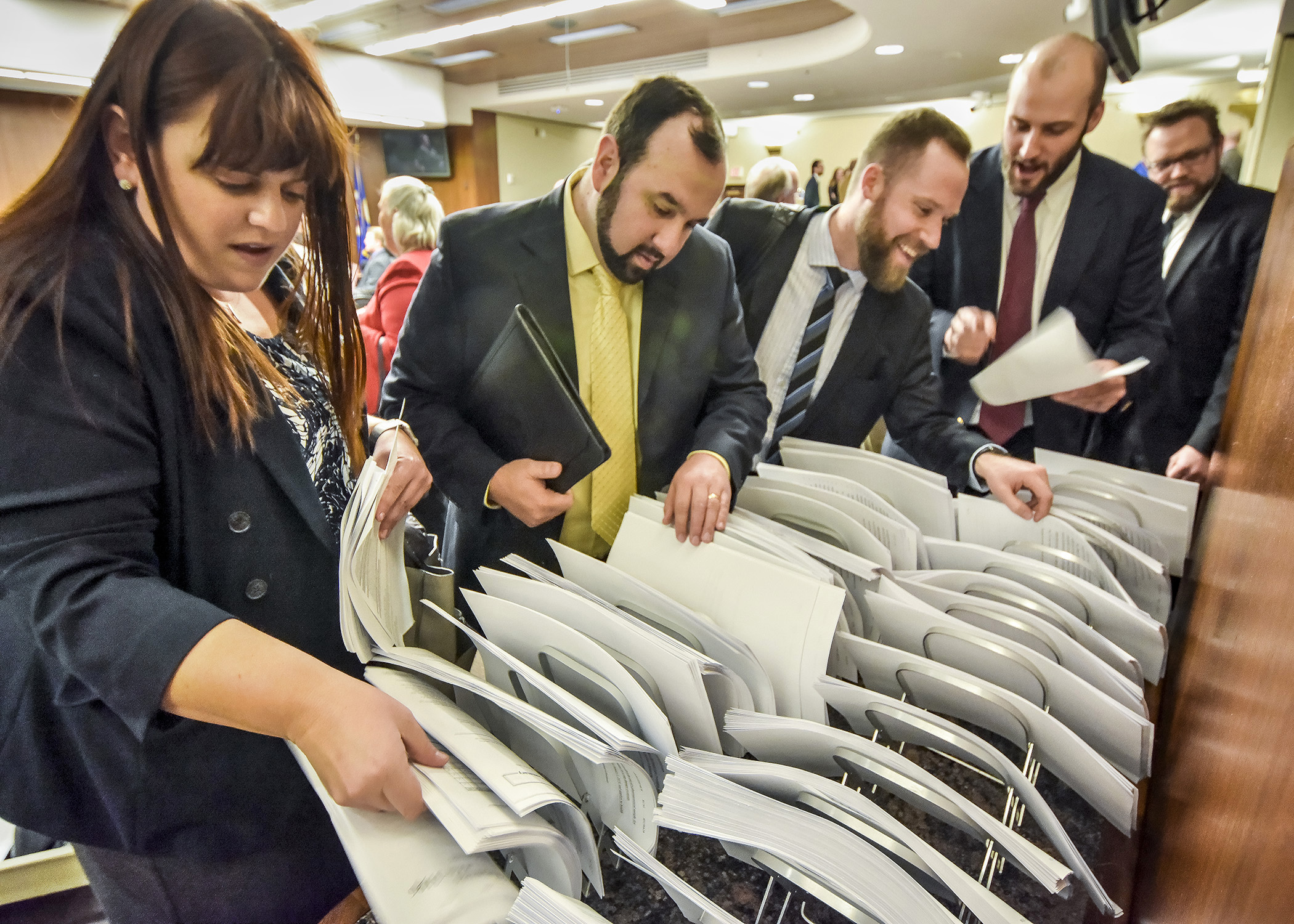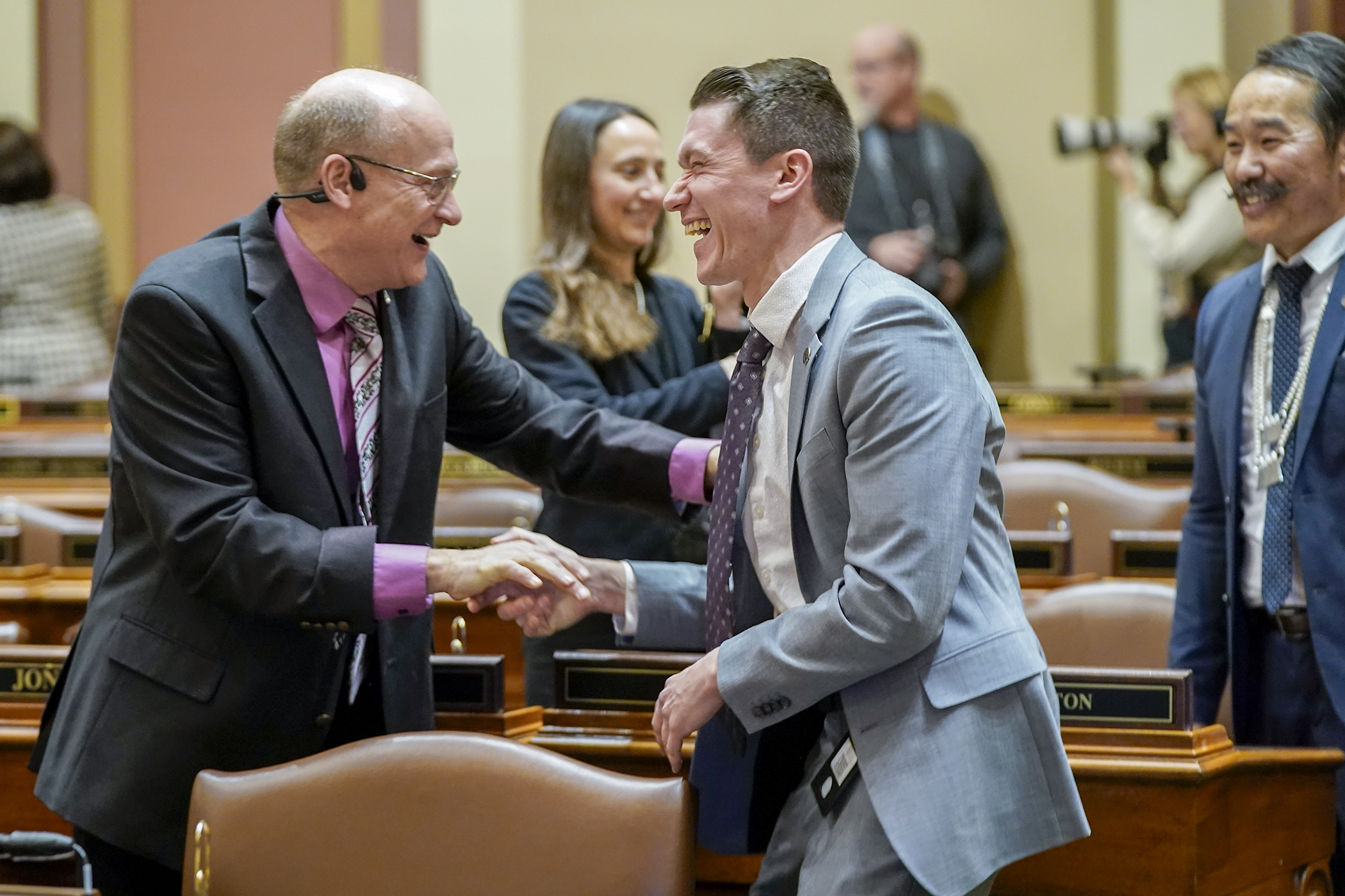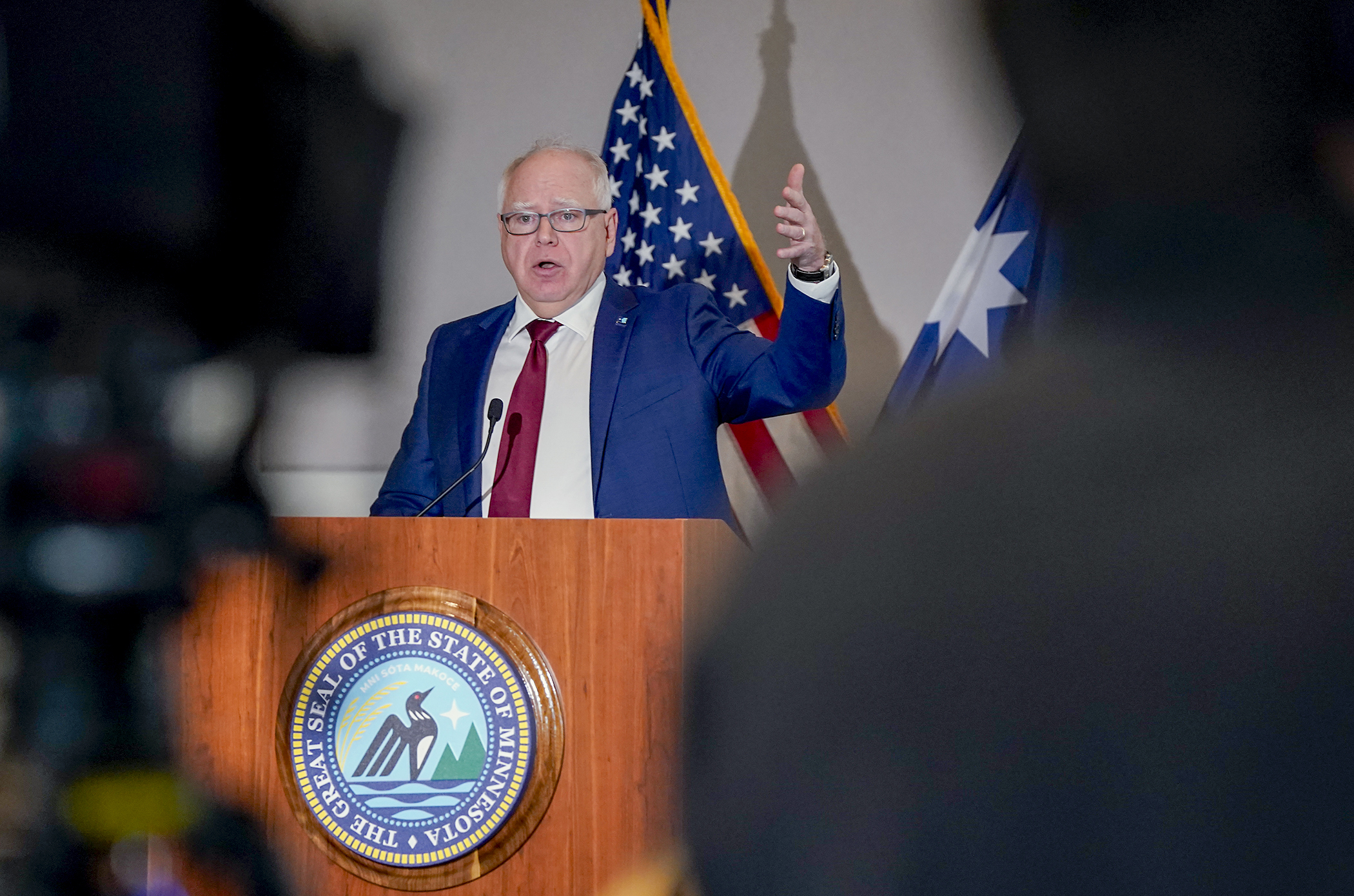House committee approves omnibus health finance bill

(9:55 p.m. — story updated following final vote)
The 2018 omnibus health and human services finance bill made it out of its home committee late Thursday on a split-voice vote.
The vote occurred after dozens of amendments were offered and many hours of discussion took place.
Sponsored by Rep. Matt Dean (R-Dellwood), the delete-all amendment to HF3138, as amended, contains policy provisions relating to the opioid epidemic and elder care abuse, while also spending an additional $10 million from the General Fund and reallocating spending in other areas.
Its next stop is the House Ways and Means Committee.
The companion, SF2505, sponsored by Sen. Michelle Benson (R-Ham Lake), was approved Thursday by the Senate Health and Human Services Finance and Policy Committee.
No Republicans commented on the overall package in the moments before the final vote, but Rep. Tina Liebling (DFL-Rochester) said the bill as is would likely draw a veto from Gov. Mark Dayton. She referred to several provisions as “poison pills,” including one that would cut the percentage MNsure can charge on health insurance premiums, and another that would force the Department of Human Services to track down unpaid bills from enrollees in MinnesotaCare.
Included in the spending is $7.7 million to prevent a cut to people caring for Minnesota’s disabled community through the Disability Waiver Rate System, $2 million for opioid abuse prevention pilot projects and $1 million for the opioid overdose reduction pilot program.
MORE View the spreadsheet
Among the more high-profile policy provisions would be establishing several work groups to study issues surrounding elder care, including how to institute a licensure program for assisted living facilities and modify requirements in the Maltreatment of Vulnerable Adults Act. In addition, Minnesota would be permitted to join the interstate nurse licensure compact whereby out-of-state nurses could practice in the state without a specific Minnesota license, if they have a multi-state license under the compact.
The committee began its lengthy agenda with more than 30 amendments lined up for action.
Some that were adopted include:
- creating a process for an enrollee and prescribing health care provider to override a health plan company’s step therapy protocol which currently requires an enrollee to use a specific prescription medication before receiving a different prescription medication;
- a requirement that health insurers and the out-of-network emergency service provider negotiate with each other on who’s responsible for the cost before the matter goes to arbitration; and
- changing state law to align with a proposed federal rule change that expands the allowable duration of short-term individual health insurance plans. A short-term policy could only be renewed once.
An amendment from Dean, the committee chair, would require the Department of Human Services to hire a vendor that would verify the eligibility of everyone enrolled in Medicaid, MinnesotaCare and the Supplemental Nutrition Assistance Program — or SNAP — in Minnesota. An initial one-year contract beginning in 2019 would stipulate that the amount of money the vendor is paid; is limited to a portion of the amount the state saves by verifying eligibility. Dean said similar legislation was in the omnibus bill vetoed by Gov. Mark Dayton in 2017.
Related Articles
Search Session Daily
Advanced Search OptionsPriority Dailies
Full House convenes for first time in 2025, elects Demuth speaker
By Tim Walker DFL, Republicans convene with a quorum for the first time in 2025 session after agreeing to a power-sharing deal.
DFL, Republicans convene with a quorum for the first time in 2025 session after agreeing to a power-sharing deal.
Walz proposes slimmed-down 2026-27 state budget, sales tax changes
By Tim Walker This is an odd-numbered year, and so the Legislature is constitutionally required to craft a budget to fund the state government for the next two fiscal years.
Gov. Tim Walz...
This is an odd-numbered year, and so the Legislature is constitutionally required to craft a budget to fund the state government for the next two fiscal years.
Gov. Tim Walz...